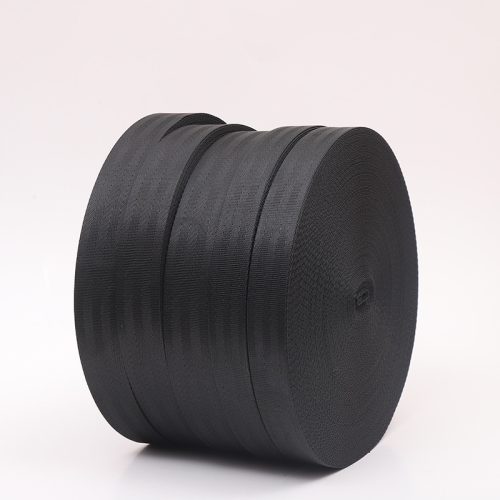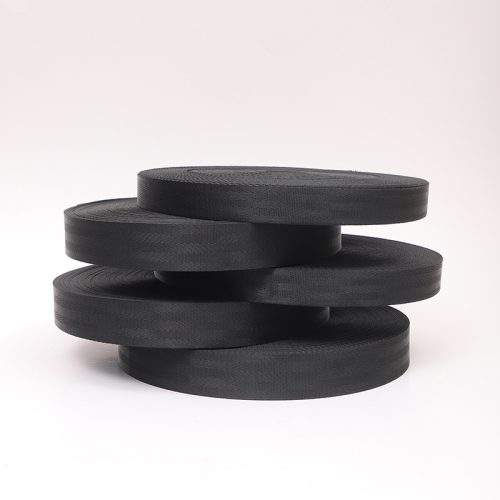Nylon webbing offers several advantages that make it a popular choice for various applications. Here are some of the key advantages of using nylon webbing:
- Strength and Durability: Nylon webbing is known for its exceptional strength-to-weight ratio. It can withstand heavy loads and significant stress without breaking or deteriorating, making it suitable for applications that require reliable and long-lasting straps.
- Abrasion Resistance: Nylon webbing has excellent resistance to abrasion, making it highly durable even in harsh conditions. This resistance helps prolong the lifespan of products that use nylon webbing, such as outdoor gear and safety equipment.
- Flexibility and Flexural Fatigue Resistance: Nylon webbing remains flexible even in cold temperatures, which is beneficial for applications in various environments. It also has good flexural fatigue resistance, allowing it to withstand repeated bending without weakening.
- Moisture Resistance: Nylon webbing is naturally resistant to moisture and water absorption. This property prevents the material from becoming weak or compromised when exposed to wet conditions, making it suitable for outdoor and marine applications.
- UV Resistance: Nylon webbing is relatively resistant to UV radiation, which helps it maintain its strength and color when exposed to sunlight over extended periods. This makes it a suitable choice for outdoor and sun-exposed applications.
- Colorfastness: Nylon webbing can be dyed in various colors, and it tends to retain its color well. This allows for customization and branding while ensuring a lasting and vibrant appearance.
- Lightweight: Despite its strength, nylon webbing is relatively lightweight. This characteristic makes it practical for applications where minimizing weight is essential, such as in outdoor gear and travel accessories.
- Wide Range of Widths and Patterns: Nylon webbing is available in various widths, thicknesses, and patterns, offering versatility for different design and functional requirements. This adaptability makes it suitable for a wide range of products.
- Ease of Maintenance: Nylon webbing is relatively easy to clean and maintain. It can often be wiped down or machine-washed, which is beneficial for products that are exposed to dirt, sweat, or other contaminants.
- Cost-Effectiveness: Nylon webbing provides a balance between performance and cost. It offers many benefits of more expensive materials while remaining relatively affordable, making it a cost-effective choice for manufacturers and consumers.
- Quick Drying: Due to its moisture resistance and relatively low water absorption, nylon webbing tends to dry quickly after being exposed to water or dampness.
- Non-Corrosive: Unlike some metals, nylon webbing is not prone to corrosion, which is advantageous for applications in wet or corrosive environments.
- Ease of Sewing and Processing: Nylon webbing is easy to cut, sew, and manipulate, which simplifies the manufacturing process for products that incorporate it.
Overall, the combination of strength, durability, flexibility, and various other advantageous properties makes nylon webbing a versatile and reliable material for a wide range of applications across industries.


